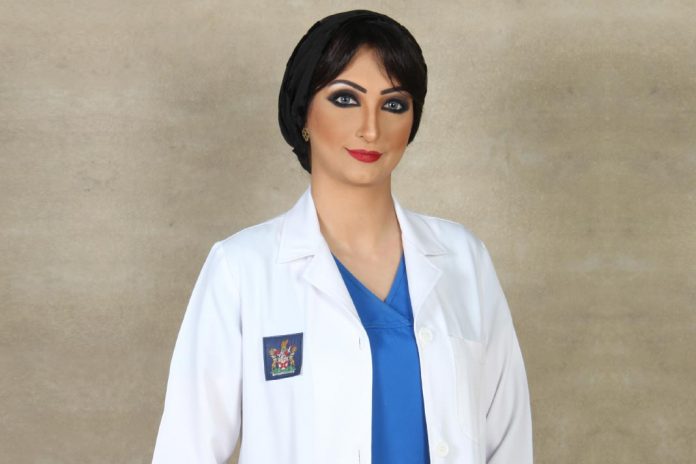After her PhD studies revealed some surprising results about breast cancer among Bahraini women, Professor Ghufran Ahmed Jassim, has helped set studies in progress to improve treatment.
An Associate Professor in Family Medicine at the Royal College of Surgeons in Ireland – Bahrain, Prof Ghufran has almost an alphabet of letters after her name and is passionate about women’s health in general and breast cancer among the Bahraini population in particular.
Formerly a General Practitioner (GP) she made the move into academia after several years working in clinics in the public health system. She carried out studies into breast cancer in Arab women as part of her PhD and her research threw up some surprising and disturbing results – which have since prompted action.
SURPRISING REVELATIONS
Prof Ghufran explains: “My study ran in three parts. The first was the quality of life for Bahraini women with breast cancer. We found that women here get breast cancer at a younger age than in the West, perhaps 10 years younger! That’s why our screening programme starts at 40, because here women are likelier to present at 40 than at 50 and it is often at an advanced stage.
“There is not yet any indication of why this is the case so we have started a genetic study. It is not BRCA 1 and 2 [the recognised gene mutations that are likely to lead to breast cancer], in fact this genetic factor is relatively rare in the Bahraini population; so, we are looking for something else that these cancers have in common. The genetic study is running over two years with around six months left to go.
“Quality of life is definitely affected by a woman’s age. For example, when women are diagnosed younger, there may be issues of fertility; there may also be different cultural and religious factors affecting patients, such as husbands being responsible for decisions about their wives’ health, without being fully aware of their impact.
“Women may also be fearful of the intimate nature of the cancer and all of these may be reasons for the advanced stages of presentation. The more advanced the disease is at diagnosis, the less the chance of survival.
“For this reason, it’s important to talk about and raise awareness of breast cancer. By saying it out loud, we draw attention to it.”
ASKING PERTINENT QUESTIONS
The second part of her study took a more detailed approach in asking women to talk about how the disease was affecting them. “Sometimes people throw up concerns that might not be medically obvious,” says Prof Ghufran. “This is important in gaining an understanding of how people are feeling about the disease within themselves.”
Results showed women had three leading concerns: issues of sexuality and body image; concern over dealing with children, how to break the news etc; and the issue of power in making their own decisions – this was underlying and had not really been expressed publically before.
“It told us that there needed to be much more discussion with patients and their families about both the disease and the treatment, side effects and suchlike,” says the professor.
 A HOLISTIC APPROACH
A HOLISTIC APPROACH
The third part of the study was the need to gather higher quality evidence in looking at the effectiveness of psychological intervention – different types of counselling – what type and format is helpful; and is it helpful or not?
Prof Ghufran explains: “We looked at a huge range of published material and the results of studies and then came up with conclusions for physicians to use in their practice.
“There is very little psychological intervention in this region, so, we thought that we should look at it and have something to take to the authorities. We found that a very specific type of counselling, CBT (cognitive behavioural therapy) – based on the way you think and thus behave – was the best in affecting the psychological state and led to a decrease in depression and anxiety and increased quality of life. However, psychological intervention had inconclusive results in prolonging life.
“From that study, we got what we needed to talk to the authorities. The National Oncology Centre has moved to King Hamad University Hospital (KHUH) and we are discussing, with them, the possibility of having a full team involved in patient care so that patients can get a holistic approach to the disease.”
 ONGOING CAMPAIGNS
ONGOING CAMPAIGNS
Several years on from her PhD study, Prof Ghufran is still very much involved in women’s health and as well as doing genetic analysis from the ongoing study, she has now turned her attention to another female cancer, that of the cervix.
“This is the only type of cancer that can be prevented by the use of a simple vaccine [the HPV vaccine] but it is not available here except in the private hospitals. The Ministry of Health has requested the findings of our study, which we provided to them in an attempt to the convince the authorities to introduce it.”
She also started the first Well Woman Clinic at KHUH, the first in the public sector – it began with just four patients a day but now it’s up to 30! And, the professor adds that it’s not just about gynae matters but all sorts of issues concerning women.


































